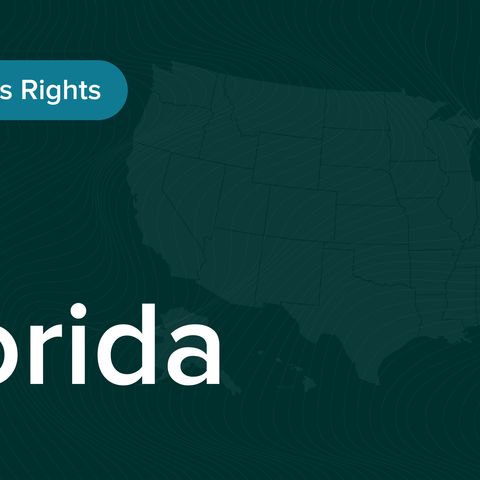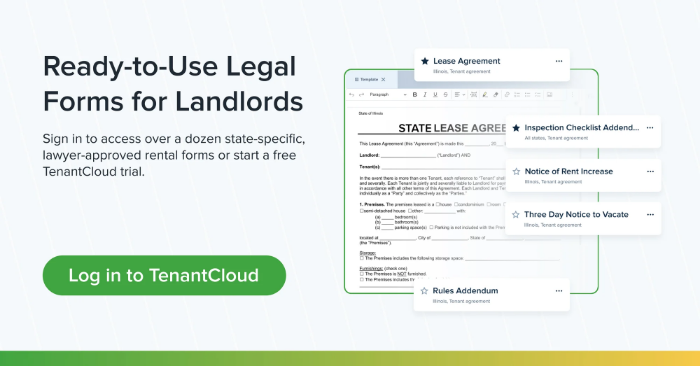In Florida, a "squatter," also known as a person who occupies a property or part of land without the owner's permission, can legally obtain a property in some cases. While it serves a purpose, it can be genuinely concerning for property owners—and for good reason.

The last thing any homeowner wants is for someone else to take over your property, either legally or illegally. To protect your property rights, all you need to do is understand Florida squatter's rights laws and how they work.
Let's go over what adverse possession laws are, how they work, and what Florida property owners can do to maintain their legal ownership, despite squatters rights in Florida.
TL;DR
Florida’s squatter laws allow someone to gain ownership of a property through adverse possession if they meet strict requirements—like living there openly for seven years and paying property taxes. New laws in 2025 give commercial owners and hotels faster ways to remove unauthorized occupants, but residential landlords must still follow the formal eviction process. Staying proactive with inspections, security, and clear communication is the best way to protect your property rights.
Key Florida Updates 2026
Note: Florida introduced two new squatters laws in June and July of 2025 aimed at streamlining evictions for unauthorized hotel guests or commercial units:
- SB322 introduces a new nonjudicial eviction protocol for commercial property owners dealing with unauthorized occupants. Instead of pursuing a traditional court-ordered eviction, Florida commercial property owners may now file a sworn complaint directly with the county sheriff to assert ownership. [More info]
- SB606 is for hotel owners, and it states that operators can notify the guest in writing via email, text, or printed paper. If the guest continues to squat on the Florida property, law enforcement may take the guest into custody. [More info]
What is Florida's Squatter Rights Law?
In Florida, squatting can happen intentionally—such as a person occupying an empty or abandoned property— or by accident, such as a land or property miscommunication. No matter how a squatter ended up on the property, Florida law states that the occupant may be able to gain title and ownership of the property under certain circumstances.
In fact, when landlords or property owners discover a squatter on their property, the only way they can legally remove them is by following standard Florida eviction laws. Yes, even if the squatter never had permission to stay there in the first place.
 What is an Adverse Possession Claim?
What is an Adverse Possession Claim?
Settling on land without permission has been known as squatting since the 1700s. Today, squatting is still a way to acquire legal title to land and buildings considered to be abandoned, but the legal term for taking ownership is known as “adverse possession.”
If a squatter decides to start the legal process to obtain exclusive possession (and act on their "squatters rights," this is known legally as making an adverse possession claim. The courts will then look for several important markers before deciding if it is a valid adverse possession claim.
How Does an Adverse Possession Claim Work?
These requirements are broken down into different categories:
- Continuous Possession: Has the squatter continuously stayed on the property for a length of time? In Florida, this is for at least seven years.
- Hostile Possession: This does not mean violent intentions. Legally, it means the possessor (in this case, the squatter) must be aware of their trespassing (aka did not receive consent) or must have made an honest mistake, such as relying on an inaccurate deed or believing the land was theirs originally.
- Open Possession: Possession must be open, not hidden or secret. The person must live as if they were rightfully living on the property.
- Actual Possession: The person must live physically on the land and treat the property as if it were their own.
- Exclusive Possession: To qualify for squatters' rights in Florida, a person must not share their possession with others and must be occupying the property for seven years. If they leave halfway through and return, the time starts over.
- Improvements to the Property: The person must improve, cultivate, or protect the property. This is not a requirement in all states, but it is in the case of Florida adverse possession.
 Florida Adverse Possession Claims
Florida Adverse Possession Claims
Squatters rights in Florida states specific time requirements before an adverse possession claim can be made. These requirements are different compared to other states. The rules in Florida are as follows:
- A person must consecutively occupy the property for seven years before they are eligible to submit an adverse possession claim. As previously stated, the time spent on the property must be consistent without any breaks.
- They must prove they have improved or kept up the property and paid the property taxes for the duration of seven or more years.
- They must present a color of title, a document that gives the appearance of a legitimate title but is not legally valid due to an error or typo. If a squatter does not have a color of title, it is challenging to gain adverse possession.
 Evicting a Florida Squatter
Evicting a Florida Squatter
If a person has already taken up residence on your property, it is crucial to act quickly. You should begin initiating the Florida eviction process as soon as possible, whether they have started an adverse possession claim or not.
How to Evict a Squatter Safely
Most importantly, do not try to evict squatters yourself. No matter how long you've owned the property, squatters rights in Florida are protected. Here's how to properly evict a Florida squatter while abiding by Florida squatter laws:
- Serve an Eviction Notice: Start by serving an eviction notice to the individual. Be sure to follow Florida's specific laws and regulations regarding notice requirements. The notice should clearly state the reason for eviction and a deadline for them to vacate the premises.
- File an Unlawful Detainer Lawsuit: If the person does not leave by the deadline given in the eviction notice, file an unlawful detainer lawsuit, a process to regain possession of your property. Always consult legal counsel to ensure proper filing.
- Court Proceedings: Attend all scheduled court proceedings and present your case according to your legal framework.
- Final Results: The property ownership is transferred to the correct person. If the court rules in your favor, the sheriff's department will assist in physically removing the squatters from the property. (This could involve law enforcement if necessary.)
 For more details on the laws and rules regarding Florida evictions, visit our detailed blog on the subject.
For more details on the laws and rules regarding Florida evictions, visit our detailed blog on the subject.
Trespassing Laws vs. Squatters Rights
It's a good idea for property owners to understand local trespassing laws and how they differ from Florida squatters rights. Put simply, trespassing, or unlawfully entering a property, is a criminal offense which can result in immediate arrest, whereas squatting is the act of occupying a property without owner's permission.
A closer look at trespassing vs. squatters rights:
- When someone enters your property without permission and or with force, it is trespassing, an illegal act that could result in criminal penalties.
- When someone occupies a vacant property with the intent to live there, it is considered squatting under Florida squatter law.
- If a trespasser refuses to leave your property when asked, they can be charged with criminal trespassing, often leading to fines and possible imprisonment.
- If someone has been squatting in a vacant property, you cannot claim trespassing and must evict the squatter the legal way.
- Remember that in Florida, a person must receive notice that they are on someone else's property before being considered for trespassing.
- A squatter can begin the process to claim adverse possession of a property they are inhabiting—most often a vacant or foreclosed property. An intruder cannot walk into your home and try to take adverse possession.
- Someone may trespass with the intent to cause injury to an owner or commit theft. A squatter is living in a property without permission.
Protect Your Property Rights: How to Prevent Squatters
When it comes to keeping squatters off of your property, prevention is key. If you're a landlord or property management company, there are several preventative measures you can take to protect your legal rights. Keep in mind that quick action can save you time and money, so don't delay. Here are the best ways to protect your property:
- Invest in a Security System: A home with good security is less attractive to squatters, and if a person attempts to break in, you can get notified immediately. There are many security systems available today, from do-it-yourself cameras and doorbells to fully-installed systems.
- Screen Tenants Before Move-in: Start with a thorough tenant screening, which you can do on your own, or try our easy tenant screening tools, which include a background check, credit check, financial summary, and references.
- Visit Your Vacant Property Regularly: The sooner you find suspicious activity, the better your chances of getting rid of it before it becomes a problem. Check your property often, have a neighbor perform regular check-ins, or hire a property management company to keep tabs on the property. Showing that your property is visited frequently will deter anyone from considering the place as an option to squat.
- Maintain a Lived-in Presence: Keep the property looking like someone lives there, even if it's empty— maintaining the landscaping, getting the mail, and cleaning the inside and outside regularly are a few examples.
- Promptly Address Lease Violations: If you suspect you have an unauthorized occupant, take immediate action. Issue a proper warning and, if necessary, initiate the eviction process.
- Hang a No Trespassing Sign: This can help expedite the legal process if someone intrudes.
The Takeaway
Squatters rights in Florida can be a landlord's nightmare. However, by understanding the law, taking preventive measures, and knowing the eviction process, you can protect your property from squatters. Feel free to seek legal advice and consult with local authorities if you find yourself in this challenging situation. Staying proactive and informed will help you in the long run.
By following these steps and carefully watching your property, you can avoid the hassles and costs associated with squatters. Remember, your property is an investment, and with the proper knowledge and actions, you can safeguard it from unwanted intruders and protect your rights as a landlord.
Simple, Better Property Management
Ready to organize your rental business with the property management software designed for landlords? Get started with a free trial of TenantCloud. Easily screen tenants, track payments, and keep a record of property details, and so much more. Try it free for 14 days!
FAQs
 Do squatters need to pay property taxes to claim a property?
Do squatters need to pay property taxes to claim a property?
If a squatter plans to claim adverse possession, they have a better chance if they have paid property taxes for the entire duration of their stay.
Can landlords in Florida remove squatters themselves?
No, Florida landlords do not have the right to legally remove people from their property. The only way to evict a squatter in Florida is to follow the legal eviction process.
Is squatting considered trespassing under Florida laws?
No. While trespassing is criminal, squatting doesn't always qualify as trespassing. If people stick to the rules of adverse possession, they are protected by Florida's rights. If they fail to follow these rules, a landlord will likely have a case against them for trespassing.
What properties are more likely to attract squatters?
A vacant, abandoned, or otherwise empty home is an easy target for squatters.




